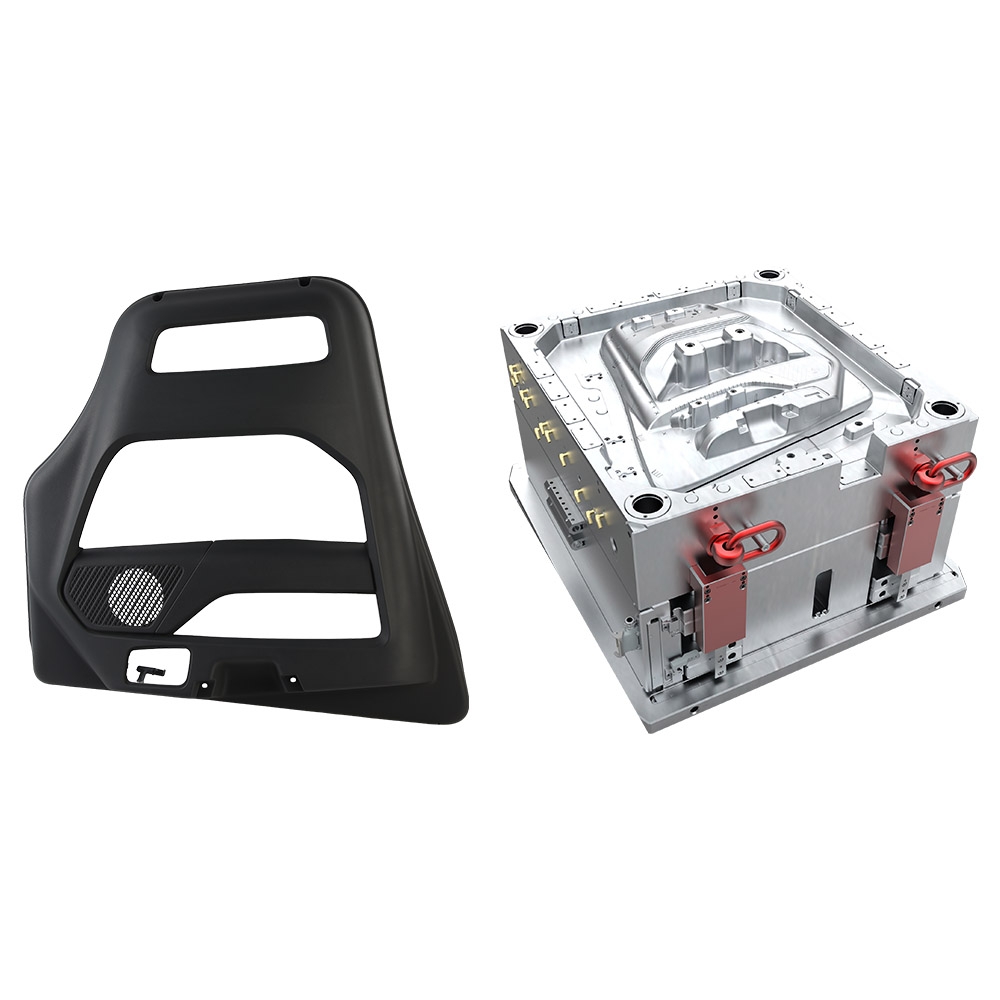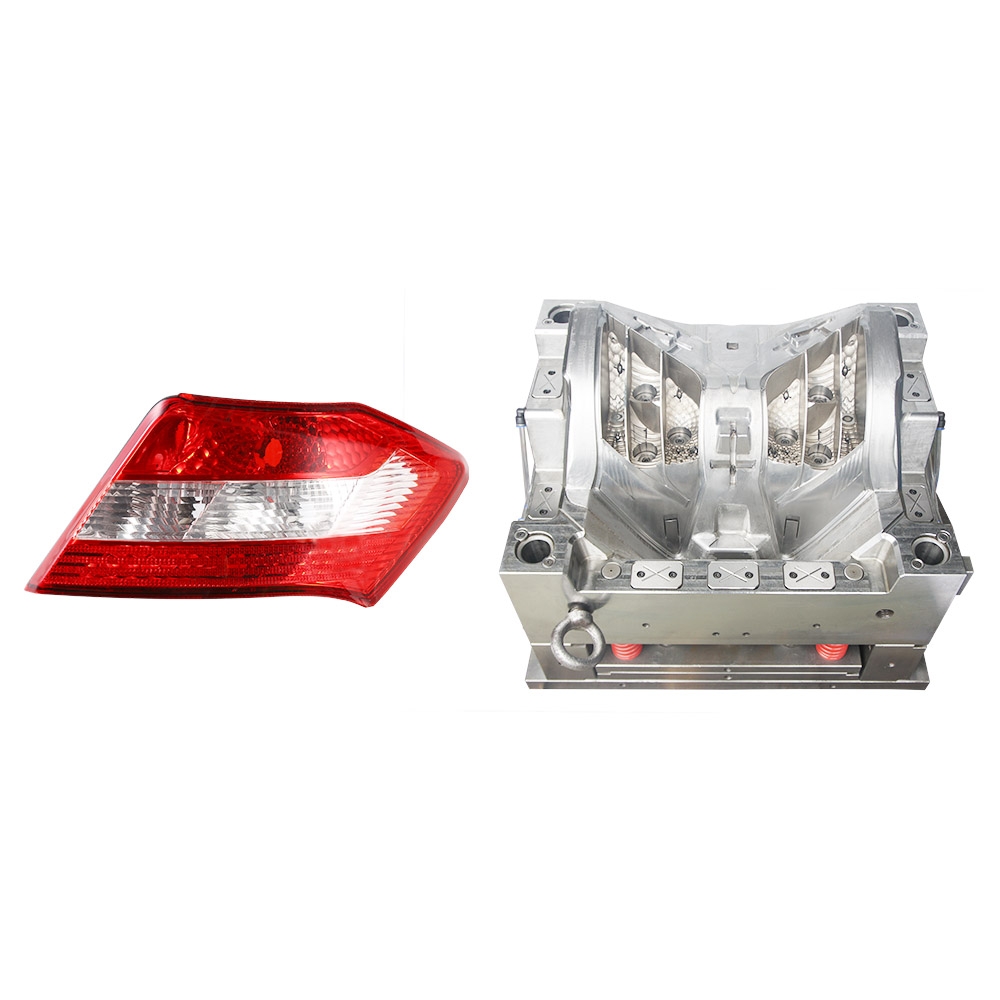Custom automotive car body moulds Manufacturer
In the fast-paced and demanding world of automotive manufacturing, the role of the automotive mould cannot be understated. These tools are the backbone of mass production, used to shape and form various components that go into building modern vehicles. However, one characteristic of automotive moulds that is often overlooked but critical to their success is corrosion resistance. Automotive moulds must be able to endure harsh working conditions, including exposure to chemicals, solvents, oils, and other corrosive substances. In this article, we explore the importance of corrosion resistance in automotive moulds, how manufacturers enhance this property, and the impact it has on the overall performance and longevity of these essential tools.
Understanding the Need for Corrosion Resistance in Automotive Moulds
Automotive moulds are used to produce a wide range of components for vehicles, including engine parts, body panels, interior trims, and electrical housings. These moulds are subjected to conditions during production, including high temperatures, intense pressure, and exposure to chemicals that are part of the manufacturing process. These factors can accelerate the degradation of moulds if proper precautions are not taken.
Exposure to corrosive substances such as oils, lubricants, cleaning agents, and acidic chemicals is a constant challenge. For example, when plastic parts are being formed, the moulds often come into contact with aggressive chemical agents that are used to prepare the materials. The same goes for metal components, where high temperatures and chemical reactions can cause oxidation and rusting. Without effective corrosion resistance, automotive moulds would degrade quickly, resulting in frequent maintenance and replacement costs, as well as a decrease in product quality.
How Corrosion Resistance Enhances the Longevity of Automotive Moulds
The primary purpose of enhancing the corrosion resistance of automotive moulds is to prolong their lifespan. Moulds that are prone to corrosion can develop pitting, cracking, and surface degradation, which can negatively impact the precision of the components they produce. For example, rust or corrosion on a mould can cause defects in the moulded parts, resulting in poor surface finishes, dimensional inaccuracies, and reduced functionality. The consequences of such defects can be costly, to wasted materials, delayed production, and even damage to the final product.
By improving corrosion resistance, manufacturers can ensure that their automotive moulds maintain a high level of performance over an extended period. This means fewer disruptions to the production process, reduced downtime for maintenance, and an overall increase in the efficiency of the manufacturing line.

Methods of Enhancing Corrosion Resistance in Automotive Moulds
There are several methods used by manufacturers to enhance the corrosion resistance of automotive moulds. One common approach is the application of anti-corrosion coatings or surface treatments. These treatments are designed to create a protective layer on the mould’s surface, preventing direct contact between the mould and corrosive substances.
One popular method is the use of chrome plating, which provides a highly resistant surface that is both hard and smooth. This treatment helps reduce friction, minimize wear, and protect the mould from chemical attack. Another common treatment is nitriding, a process that introduces nitrogen into the surface of the mould, creating a hard, corrosion-resistant layer that is ideal for high-temperature applications.
Additionally, automotive moulds are often made from materials that are inherently resistant to corrosion, such as stainless steel or specialized alloys. These materials are more expensive than regular steel but offer significant advantages in terms of durability and resistance to corrosion. Stainless steel, for instance, contains chromium, which forms a passive layer on the surface that protects the material from oxidation and corrosion.
Manufacturers also use advanced coatings such as ceramic or titanium nitride (TiN) coatings. These coatings offer corrosion resistance and are commonly applied to moulds used in the automotive industry, especially for high-performance applications where durability and longevity are critical.

The Role of Proper Maintenance in Corrosion Resistance
While corrosion resistance is built into automotive moulds during the manufacturing process, it is essential for companies to perform regular maintenance to preserve this property. Over time, even the resistant materials and coatings can wear down due to the demanding conditions in which automotive moulds operate.
Regular cleaning and inspection are vital to ensuring that moulds retain their corrosion-resistant properties. For example, after each production cycle, automotive moulds should be thoroughly cleaned to remove any residual chemicals, oils, or other substances that could promote corrosion. Lubrication of moving parts and ensuring that the mould is properly stored in a dry, controlled environment can also help extend its lifespan.
In addition, routine inspection for signs of wear or corrosion can prevent small issues from turning into major problems. Detecting the early stages of corrosion allows for prompt repairs or re-coating, which can prevent more significant damage and costly downtime. This attention to detail ensures that automotive moulds continue to operate at performance levels throughout their life cycle.
The Impact of Corrosion Resistance on Automotive Manufacturing Efficiency
The benefits of corrosion resistance in automotive moulds go beyond just increasing the lifespan of the mould itself. High-quality, corrosion-resistant moulds to a smoother and more efficient production process. When automotive moulds are free from corrosion, the production process is more consistent, which results in better-quality components and fewer defects.
For automotive manufacturers, consistency is key. The ability to produce parts that meet strict quality standards, day in and day out, without interruptions due to mould degradation is essential for maintaining productivity and profitability. Corrosion resistance in automotive moulds ensures that manufacturers can produce high-quality parts at a consistent rate, which helps reduce scrap rates and improve the bottom line.
Moreover, reducing the need for frequent mould repairs or replacements also helps lower operating costs. While the initial investment in corrosion-resistant moulds or coatings may be higher, the long-term savings from reduced maintenance and fewer disruptions to production can be significant.
As the automotive industry continues to evolve, the demand for more durable, efficient, and environmentally friendly manufacturing processes will increase. The development of new materials and coatings that offer even greater corrosion resistance will play a crucial role in shaping the future of automotive moulds.
For instance, innovations in nanotechnology and advanced ceramics could to even more resistant coatings and mould materials. These technologies could provide automotive manufacturers with moulds that are not only highly resistant to corrosion but also more lightweight and capable of withstanding higher temperatures and more aggressive chemicals.
In conclusion, corrosion resistance is an essential characteristic of automotive moulds that directly impacts their longevity, performance, and efficiency in the manufacturing process. By employing advanced surface treatments, using high-quality materials, and performing regular maintenance, manufacturers can ensure that their automotive moulds remain durable and reliable for extended periods. As the automotive industry continues to demand more from its manufacturing processes, the role of corrosion-resistant automotive moulds will only grow in importance, helping to ensure that the production of high-quality vehicle components remains efficient and cost-effective.





 English
English عربى
عربى Español
Español Français
Français








